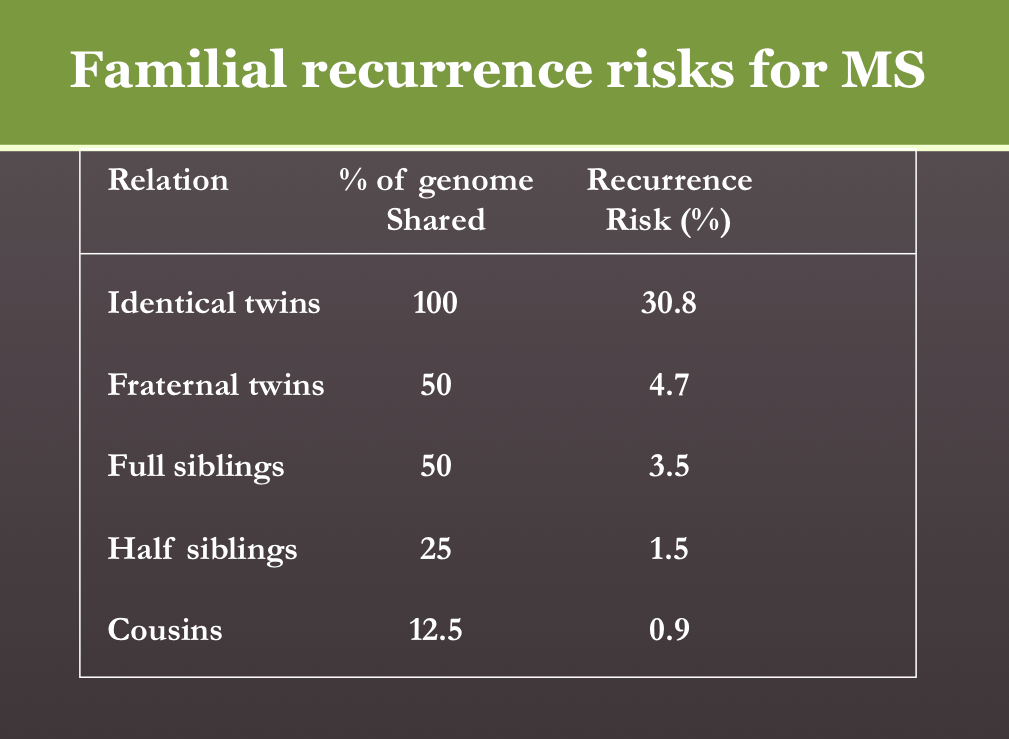There is no known cause for Multiple Sclerosis (=MS).
MS is thought to be an autoimmune disease – A disease where the immune system acts against your nerves.
The thought is that there is an interaction between your genes, your environment and your immune system.
There are a few genes that were identified in people with MS.
The most common gene in about 60% of people with MS is a gene called HLA-DR2 (=Human Leukocyte Antigen DR2) which is responsible for immune function.
The genome is the genes that family members share – for example identical twins have the same genes 100% but there is 33% (1/3) chance transmission of MS between identical twins that is – if one of the twins has MS, there is about 30% that the other twin will develop MS, telling us that MS is not only genetic transmittable disease.
In recent years many researchers/clinicians study the Microbiome. The gut microbiome is part of our immunity and likely is involved in the pathophysiology of MS.
Many patients usually ask –
“will my kids have MS?”
It is impossible to provide a direct answer. MS is not a direct hereditary disease like Thalassemia or other genetic diseases, but when one of your family members have MS, your risk to have MS is higher than the general population. MS is likely a disease caused by multiple genes and single/multiple environmental factors leading to immune changes and damage in the brain and the spinal cord.
There is increased risk of MS in people who have MS in their family – see table for risk in family members:
Full siblings are siblings with same parents & half siblings are siblings with one common parent.
Environmental factors that are thought to be associated with MS are:
1. Epstein Barr virus which is a virus that cause mononucleosis. Many clinicians connect the virus with development of MS but the relation is not known.
A recent Study (2022) revealed that people infected with EBV were 32 times as likely to develop MS as uninfected people. The researchers found no such association between MS and any other human viruses.
References: Longitudinal analysis reveals high prevalence of Epstein-Barr virus associated with multiple sclerosis. Bjornevik K, Cortese M, Healy BC, Kuhle J, Mina MJ, Leng Y, Elledge SJ, Niebuhr DW, Scher AI, Munger KL, Ascherio A. Science. 2022 Jan 21;375(6578):296-301. doi: 10.1126/science.abj8222. Epub 2022 Jan 13. PMID: 35025605. Funding: NIH’s National Institute of Neurological Disorders and Stroke (NINDS); National Multiple Sclerosis Society; German Research Foundation (DFG); Howard Hughes Medical Institute.
2. Vitamin D deficiency.
3. Smoking.
4. Geographic area – MS is more common in countries that are far from the equator.
